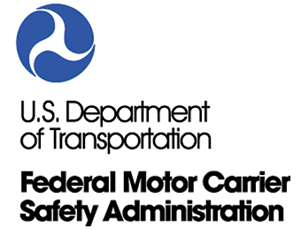Senior Reporter
FMCSA Proposes to Plug ‘Information Gap’ in Drug and Alcohol Clearinghouse Rule

[Stay on top of transportation news: Get TTNews in your inbox.]
The Federal Motor Carrier Safety Administration has issued a proposed rule that would plug an existing “information gap” to ensure that state driver licensing agencies are prohibited from issuing, renewing, upgrading or transferring a commercial driver license or learner permit to truck drivers with drug and alcohol violations.
“The commercial motor vehicle driving ban is intended to keep these drivers off the road until they comply with return-to-duty requirements,” FMCSA announced April 27.
Carriers, state driver licensing agencies and law enforcement officials use the Drug and Alcohol Clearinghouse — a database of violations — to check a driver’s violations.

However, FMCSA said that most states are not aware when a CDL holder licensed in their state is prohibited from driving a commercial vehicle due to an alcohol or drug testing violation.
“Consequently, there is no federal requirement that state driver licensing agencies take any action on the license of drivers subject to that prohibition,” the FMCSA announcement said. “As a result, a driver can continue to hold a valid CLP or CDL, even while prohibited from operating a CMV under FMCSA’s drug and alcohol regulations.”
The agency said the proposal would align a driver’s CLP or CDL status with his or her commercial vehicle driving status, thus closing the current regulatory loophole that allows these drivers to evade detection, the agency said.
The proposal responds to operational questions and legal issues identified through the American Association of Motor Vehicle Administrators following publication of the final rule, FMCSA said.
“FMCSA also seeks comment on alternate proposals establishing additional ways that SDLAs would use information, obtained through the Drug and Alcohol Clearinghouse, to increase compliance with the commercial motor vehicle driving prohibition,” the announcement said.
The announcement also said the agency proposes to revise how reports of actual knowledge violations, based on a citation for driving under the influence in a commercial vehicle, would be maintained in the Clearinghouse.
The agency also is specifically seeking public comment on 13 major issues for 60 days.
The announcement said that based on violations reported to the Clearinghouse, FMCSA can now provide certain state enforcement personnel real-time notice of a driver’s prohibited driving status.
The agency suggested two alternatives to plug the current information gap.
Compare each of the presidential candidates' plans for addressing America's infrastructure needs. See our Candidate Infrastructure Tracker.
One alternative would require that state driver licensing agencies remove the CLP or CDL privilege of any driver subject to the commercial vehicle driving prohibition (mandatory downgrade), after receiving a “push” notification from the Clearinghouse that the driver is prohibited from operating a CMV.
The other alternative would permit, but not require, state driver licensing agencies to receive “push” notifications from the Clearinghouse whenever drivers licensed in their state are prohibited from driving due to a drug or alcohol testing violation (optional notice of prohibited status). Under the alternative, driver licensing agencies would opt to receive this information through the Clearinghouse and would also be notified when the driver is able to resume operating a commercial vehicle following completion of the return-to-duty process, in accordance with federal regulations.
Then the state would determine whether, and how, to use the information to enhance enforcement of the driving prohibition, FMCSA said.
The questions stakeholders were asked to comment on ranged from how much time do states need to adapt their IT systems and implement the proposal to identifying how much the proposal would cost to implement.
Want more news? Listen to today's daily briefing:




